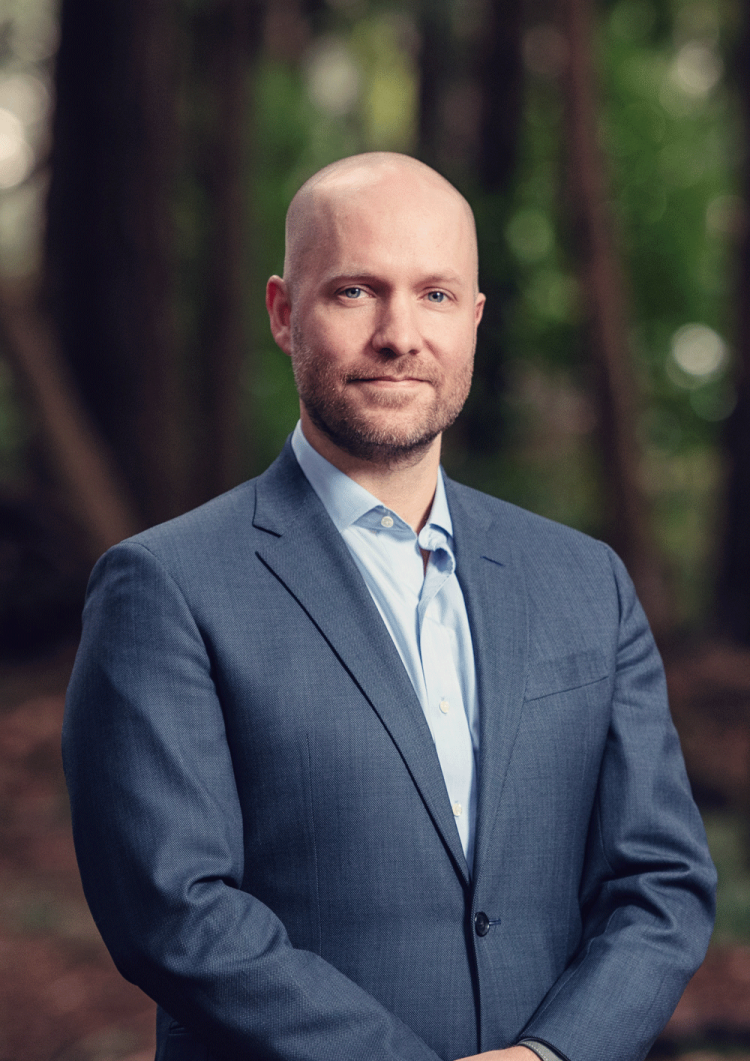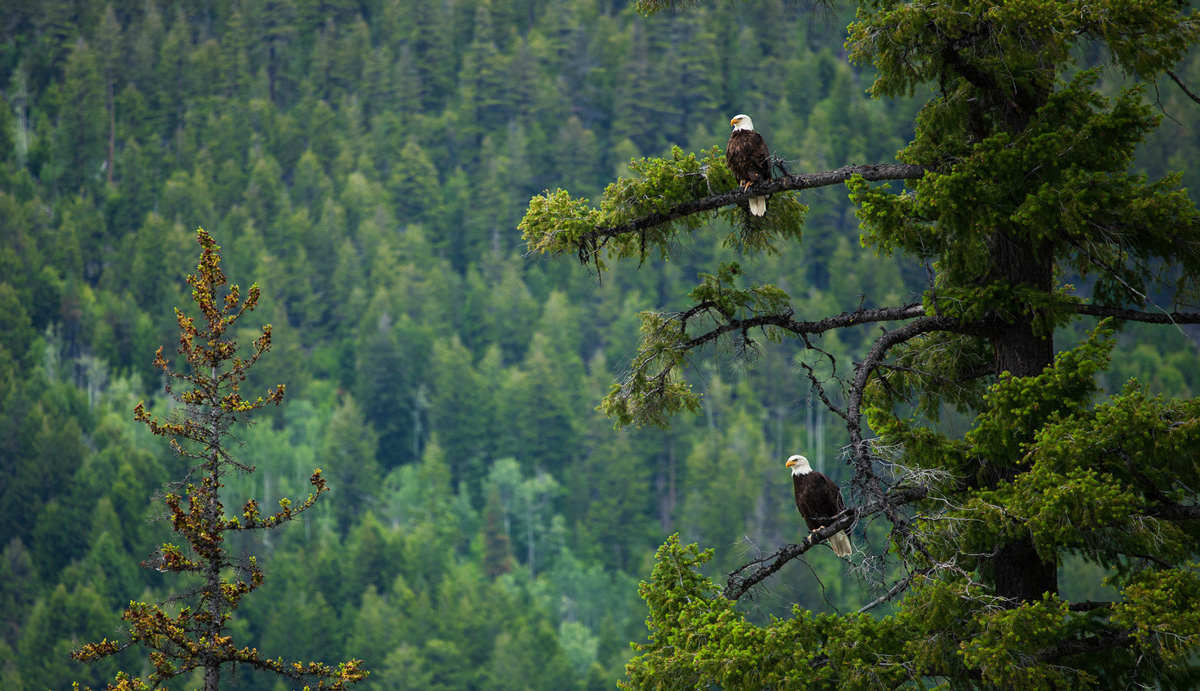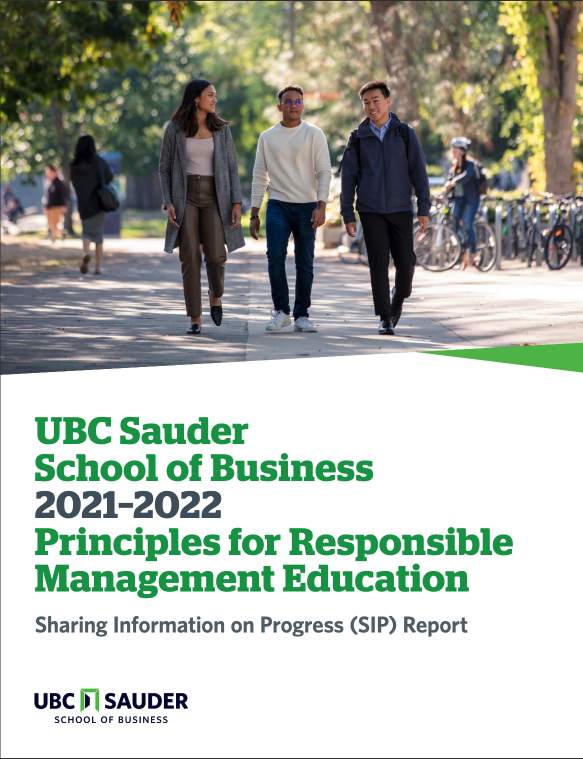Climate change: collective impacts, collective responsibility
Kate:
-
"Climate change is with us here and now. The crisis is complex and multifaceted and requires an “all hands-on deck” approach to both mitigate and adapt. We only need to look in our own backyards to see this. In British Columbia over the past couple of years, we have experienced unprecedented heat domes, forest fires, extreme cold, devastating flooding, and even a small tornado on UBC campus."
Justin:
-
"Clearly, climate change is an immediate threat. There is now a widespread sense of understanding and urgency, where the people who previously said, “climate change is a big deal, but it's not my responsibility”, are ready to contribute and actively work towards climate solutions.
I believe that COVID has taught us a lot about how interdependent and interconnected our economies, our societies, our politics, and our countries are. It also reinforced the fact that there are no more bystanders, there's no more platitudes, there's no more inspirational quotes – there's just the hard work of measuring climate impacts and designing and scaling climate solutions."
"Ten years ago, I think the notion of climate crisis was peripheral for many because it was too big, too hard and too difficult to face or even wrap our heads around. But now, with floods, heatwaves, mudslides, droughts and supply chains grinding to a halt, the impacts are palpable and there’s real momentum to take collective responsibility".
Accelerating climate solutions
Justin:
-
"UBC Sauder is an expert in knowledge translation, or to put it in more business terms: commercialization. We understand what it takes to go from a compelling new idea to a compelling, financially sustainable venture. The market has incredible influence in the world, and what UBC Sauder is able to do is harness and leverage the power of the market to scale climate solutions. I believe our role is to be a conduit for all of the wonderful thinking, research and inventiveness at UBC, and make it translatable to the broader commercial world. Simply put, inventions that can’t attract capital won’t have a significant impact."
Kate:
-
"The key here is to mobilize our collective talents and expertise, scale up climate solutions, and do it quickly.
UBC Sauder is addressing climate from three perspectives: teaching, research, and our actions. The first is what we're doing in terms of our teaching and experiential learning for students. We are embedding climate-related content into our undergraduate and graduate curricula and co-curricular activities in a variety of ways.
The second perspective is research: we already have world class faculty and thought leaders in the domain of climate and sustainability at UBC Sauder, but we are thinking about how we can incentivize more of this research and recruit more expertise in this domain.
Third, we need to consider how we're operating as an organization. We are taking strategic actions to enhance our focus on climate, including having a senior associate dean with sustainability in their portfolio, creating programs and policies to tackle the climate crisis, and considering what example we can set in terms of our own carbon footprint, which means operating as a carbon neutral business school."
New programs for UBC Sauder students
Justin:
-
"We are developing a wide range of new content and curriculum for both our graduate and undergraduate programs. We think that our MBA program is a natural home for students to concentrate on climate solutions. We have three new courses, as well as modified versions of an additional three courses to create a whole new offering that will be compelling in the global MBA landscape. We're also launching new undergraduate programming in this space: we have a pilot course just approved that will help students understand climate accounting and climate finance. We are also looking at evolving our undergraduate options to create a standalone option in climate and sustainability that will allow business students to signal to employers and the outside world that they are ready to work at the intersection of the private sector and climate."
New career opportunities coming in the climate space
Justin:
-
"What we see is that there's this huge move for climate literacy across the employment market. Understanding how to navigate this crisis is going to become a skill set required in a wide range of jobs: operations, supply chain management, finance, accounting, even human resources. Where there are dedicated climate related job descriptions, those tend to be manifesting in the world of finance, accounting and then in energy transition. So that is jobs related to energy, the built environment, or consumer product goods, where climate is a significant part of the value proposition. But the bulk of employment opportunities are actually going to be for people who have climate as a complementary skill set in addition to other specializations they already have. We're confident that there's going to be a huge demand for students who are going to be able to show that they understand how to inject climate literacy and action into their day to day jobs."
Going carbon neutral
Kate:
-
"As part of our commitment to climate action, we’re estimating, reducing, and offsetting our overall carbon emissions. UBC actually already offsets what are called scope one and scope two emissions, which basically include any carbon emissions we are directly generating as a university and the energy that we purchase. But there's this huge chunk that's left which are called scope three emissions. This includes other emissions from things like how students, faculty, and staff are commuting to and from campus, any business travel, and other things like the waste we produce.
We have engaged two organizations, one that has helped us to estimate what our scope three emissions look like and how to reduce them, and a second that has assisted us in offsetting these emissions. Through them, we've chosen two projects to support. The first is the Great Bear Rainforest Project. We like this one because it’s local, it's in partnership with nine different First Nations groups, it is nature-based, and it's very much in-line with our values as British Columbians. The second project we have selected is Merom Farms, a B.C.-based farming operation. This farm used to operate boilers that would burn natural gas, but now they are investing in using different types of biomass fuel, which is much better in terms of carbon emissions.
We are excited to say that we have offset our emissions to be a carbon neutral business school starting in 2021, and will continue to operate as a carbon neutral organization moving forward."
“Our journey towards carbon neutrality is just getting started. We’re excited about the steps we’re taking today, but we recognize there’s more progress to be made and more work to do in the days ahead. There’s no turning back on this and we look forward to continual improvement in this area.”
Tracking our progress and measuring our impact
Justin:
-
"We will be measuring how many students are coming in to either our credit or non-credit programming and engaging in climate literacy, and bringing climate literacy as a new skill set to the professional journey. We will measure our impact around how many new ventures are getting created, supported and scaling as it relates to climate. This means asking: are we being successful in our efforts to actually engage in knowledge, translation and commercialization? We plan to measure how many students we are placing in world-class organizations in the consulting and finance space, where they are actually taking a supportive or leading role in advancing climate solutions with their employer. We also want to understand where UBC Sauder is playing a connective role in the broader business community around climate."
Kate:
-
"We are also a member of Principles for Responsible Management Education (PRME) through the United Nations – they ask us to set goals and then report back on those goals, based on their six themes. We have also begun to track our research publications, and how those are advancing and supporting the United Nations’ Sustainable Development Goals."
Looking forward
Kate:
-
"One of the things that we are very excited about is the possibility of creating of a new institute for business and climate solutions. This is an aspiration for us right now that we are working toward. The goal of the institute will be to work with stakeholders in our UBC community to use business solutions in transformative ways to address the climate crisis with scale and urgency."
Justin:
-
"The idea is that it will be an inspirational gathering space for leading researchers across UBC to think about not just how to publish on climate, but how to get our ideas out in the open and how to inspire the next generation of climate leaders. Leaders who can bring the power of markets, industry and the private sector to campus to help them understand how UBC can be a point of connection for the next wave of innovation and disruption necessary to address the climate crisis."
"Incremental action is necessary, but deeply insufficient in that what we have to be asking ourselves “what's our impact in the next eight years?”"
For more background on UBC Sauder’s efforts in sustainability and innovation, read about the legacy of Sauder S3i.
About Kate White and Justin Bull
Kate White
UBC Sauder School of Business
Kate White is Senior Associate Dean of Equity, Diversity, Inclusion, and Sustainability, holds the Professorship in Consumer Insights, Prosocial Consumption, and Sustainability and is a Professor in the Marketing and Behavioural Science Division at UBC Sauder.

Justin Bull
UBC Sauder School of Business
Justin Bull is a Lecturer in the Entrepreneurship and Innovation Group, and is Leader of the Sustainability & Ethics Group at UBC Sauder.

